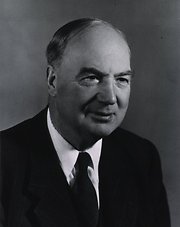 Hartlepool Sports & Leisure
Hartlepool Sports & Leisure
- Cinemas, Theatres & Dance Halls
- Musicians & Bands
- At the Seaside
- Parks & Gardens
- Caravans & Camping
- Sport
 Hartlepool Transport
Hartlepool Transport
- Airfields & Aircraft
- Railways
- Buses & Commercial Vehicles
- Cars & Motorbikes
- The Ferry
- Horse drawn vehicles
 A Potted History Of Hartlepool
A Potted History Of Hartlepool
- Unidentified images
- Sources of information
- Archaeology & Ancient History
- Local Government
- Printed Notices & Papers
- Aerial Photographs
- Events, Visitors & VIPs
 Hartlepool Trade & Industry
Hartlepool Trade & Industry
- Trade Fairs
- Local businesses
- Iron & Steel
- Shops & Shopping
- Fishing industry
- Farming & Rural Landscape
- Pubs, Clubs & Hotels
 Hartlepool Health & Education
Hartlepool Health & Education
- Schools & Colleges
- Hospitals & Workhouses
- Public Health & Utilities
- Ambulance Service
- Police Services
- Fire Services
 Hartlepool People
Hartlepool People
 Hartlepool Places
Hartlepool Places
 Hartlepool at War
Hartlepool at War
 Hartlepool Ships & Shipping
Hartlepool Ships & Shipping

Sir Edward Mellanby
Edward Mellanby was born in West Hartlepool the youngest of six children whose father, John Mellanby, was a manager of a shipyard for the Furness and Withy Shipbuilding Company. Edward was educated first Avenue Road School in West Hartlepool and then at Barnard Castle School where he showed both great athletic and scholastic prowess. In 1902 he left for Cambridge where he studied physiology. Between 1905 and 1907 he became a research student of Emmanuel College and published his first paper in 1908. Edward then went to St Thomas’s Hospital in London to do his medical training and was a demonstrator in physiology from 1909 to 1911. In 1913 he took on the role of lecturer and later became Professor of Physiology at King’s College for Women. In 1920 he became the first occupant of the Chair of Pharmacology at the University of Sheffield while, at the same time, he was appointed Honorary Physician at the Sheffield Royal Infirmary. In 1933 Edward was made Secretary to the Committee of Privy Council for Medical Research and Secretary of the Medical Research Council for whom he worked until his retirement in 1949.
During the 16 years he worked for the Medical Research Council he also carried on his own personal research at his laboratory in Sheffield where he studied the science of nutrition. This included nutrition deficiencies and the effects of various toxins in foods and the benefit of vitamins, mainly on the once common disorder of rickets. His findings into experiments with dogs who were given a restricted diet and kept indoors developed rickets but were then fed cod liver oil and recovered. These findings were published in the medical journal Lancet in 1919 and led to the discovery that rickets was caused by a lack of sunlight which resulted in a deficiency of vitamin D. He also studied the effect of alcohol on the brain and his findings became known as the Mellanby Effect. His work in this and other areas saw him become one of the founders of the Nutrition Society.
When Edward died suddenly of heart failure in 1955 there was great accolade for his achievements during his lifetime. He was knighted in 1937 and gained many letters after his name, GBE, KCB, MD, FRCP and FRS. He also could boast numerous publications which contributed greatly to the understanding of the importance of nutrition.
Donated by Richard Mellanby BSc BVMS PhD DSAM DipECVIM-CA MRCVS
Related items :
 Avenue Road School
Avenue Road School
The school was fee paying and was on the corner of Avenue Road and Thornton Street in an area demolished in the 1960s to make way for Middleton Grange Shopping Centre. It opened in 1904 in a building formerly used as a Wesleyan School and appears to have closed in 1940.
See notes taken from school log book
More detail » Sir Edward Mellanby
Sir Edward Mellanby
 Donated by Richard Mellanby BSc BVMS PhD DSAM DipECVIM-CA MRCVS
Donated by Richard Mellanby BSc BVMS PhD DSAM DipECVIM-CA MRCVSPhoto that was used on Sir Edward Mellanby's obituary in 1955. See also Avenue Road School notes.
More detail »



